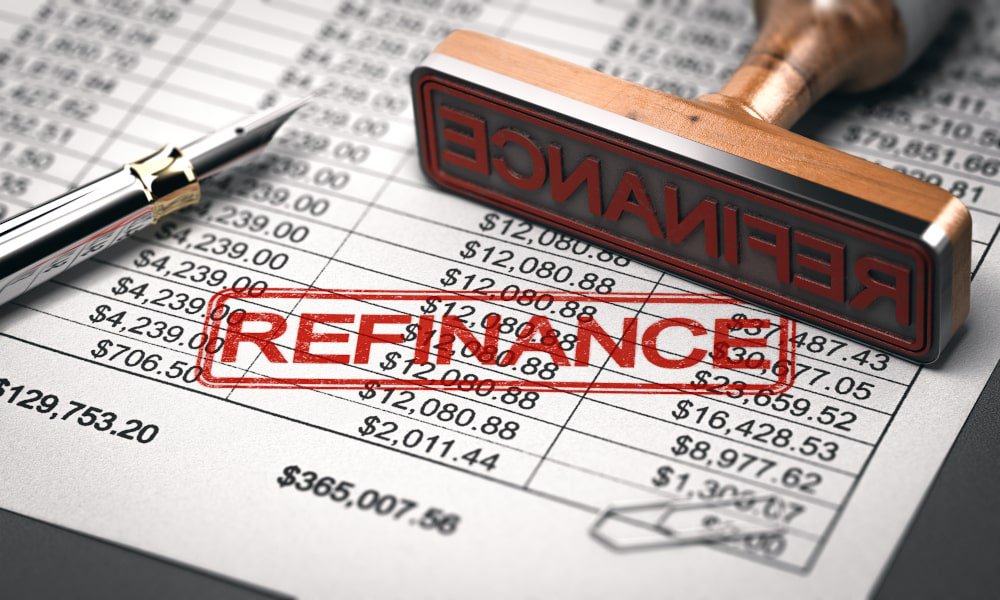How Does Refinancing Affect Your Credit Score

Mortgage refinancing can be a smart financial move, lowering your interest rate, adjusting your term, or unlocking equity for big expenses. But many Canadian homeowners wonder: Will refinancing hurt my credit score?
The answer is: Yes, but the impact is not always significant. In this guide, we’ll break down how refinancing affects your credit in both the short and long term, how lenders use credit reports during the process, and how to minimize any negative effects while maximizing your financial gains. Whether you're refinancing to lower your payments or consolidate debt, knowing how credit scores respond can help you plan ahead with confidence.
How Does Refinancing Impact Your Credit Score in the Short and Long Term?
Short-Term Impact
When you apply to refinance, your lender will perform a hard credit inquiry. This can cause a small drop of about 5 to 10 points, according to Equifax Canada. While this dip is temporary, it’s worth noting that applying with multiple lenders may result in several inquiries and drops.
Long-Term Impact
After the initial dip, your credit score can recover within a few months. Over time, your score may even be able to improve if you:
- Make payments on time
- Decrease your debt utilization
- Improve your credit mix
Refinancing can also reset the amortization period, lowering your monthly obligations and making it easier to manage other debts, further benefiting your credit score.
Does Refinancing Lower Your Credit Score Immediately After Application?
In most cases, yes. Hard inquiries are reported to credit bureaus when you formally apply. However, credit scoring models often offer a “rate-shopping window” of anywhere from 14 to 45 days where multiple inquiries are treated as one. This means you can explore different lenders without accumulating multiple dings to your score.
| Inquiry Type | Affects Score? | Duration on Report | Impact on Score |
|---|---|---|---|
| Hard Inquiry | Yes | Up to 2 Years | 5-10 Points |
| Soft Inquiry | No | Not Shown to Lenders | None |
What Credit Checks Occur During a Mortgage Refinance in Canada?
Refinancing typically involves one hard credit check, but this can vary depending on some of the following variables:
- Joint applications will trigger checks on both borrowers
- Lenders may pull from Equifax, TransUnion, or both
- Insurers like CMHC or Sagen may also conduct their own credit assessments if the loan-to-value ratio requires mortgage default insurance
Below are the step-by-step credit checkpoints that take place during a refinancing application:
- Pre-qualification (soft pull optional)
- Formal application (hard inquiry)
- Underwriting and insurer review
- Final credit verification before closing
Does Credit Score Affect Refinancing Approval and Rates?
Absolutely. Your credit score helps determine:
- Whether you qualify
- The interest rate you’re offered
- The products you’re eligible for
Example Rate Tiers:
| Credit Score | Outcome | Estimated 5-Year Fixed Rate |
|---|---|---|
| 720+ | Prime rates & best terms | ~4.9% |
| 680-719 | Still eligible, slightly higher rate | ~5.3% |
| 620-679 | Higher rates, limited options | ~6.1% |
| Below 620 | May require alternate lenders or a co-signer | ~7.0%+ |
Will Refinancing Multiple Times Hurt Your Credit More Than Once?
Yes, each refinance triggers a new hard inquiry, and repeated refinancing in short intervals ("loan churning") can:
- Prolong your score’s recovery timeline
- Raise red flags to lenders about financial stability
Spacing out refinances by at least 12–18 months gives your score time to recover and your loan profile time to properly develop.
How Can You Protect Your Credit Score While Shopping for Refinance Rates?
To protect your credit score while shopping for rates, take advantage of the rate-shopping window and follow these tips:
- Get pre-qualified with soft pulls
- Submit full applications within a 2-week period
- Keep existing accounts in good standing
- Avoid large purchases or new credit during the process
- Maintain low credit utilization ratios
Does Refinancing a Loan Hurt Your Score Differently Than a HELOC?
Yes, these two methods will have different impacts because of how each is reported.
| Loan Type | Reporting Type | Impact on Credit Utilization |
|---|---|---|
| Refinancing | Installment Loan | Not factored into utilization |
| HELOC | Revolving Credit | Affects utilization ratio |
Switching from high-balance credit cards to a refinanced mortgage may lower your utilization rate, positively influencing your score.
How Long Does a Hard Inquiry From Refinancing Stay on Your Report?
Hard inquiries are typically visible on credit reports for 24 months and can impact scores for about 12 months. They will affect new credit calculations, but not payment history.
Different bureaus weigh inquiries slightly differently (e.g. Equifax Canada vs TransUnion), but both see diminishing effects over time.
What Factors Help Your Credit Score Recover After Refinancing?
Once your new mortgage kicks in, focus on the following recovery strategies to best protect your score:
- Paying all bills on time
- Reducing outstanding credit balances
- Avoiding new debt unless necessary
- Keeping older accounts open
Credit scores are all about consistency, and so refinancing alone won’t harm your score long-term if your overall credit habits are favourable.
How Does Debt Consolidation Through Refinancing Affect Credit Utilization?
Paying off high-interest debts (like credit cards) with a refinanced mortgage can drastically lower your credit utilization ratio, especially if revolving balances drop close to 0%. Below is an example of the before and after:
| Credit Type | Balance | Limit | Utilization |
|---|---|---|---|
| Before | $10,000 | $12,000 | 83% |
| After | $0 | $12,000 | 0% |
This shift can lead to a noticeable bump in your credit score over time.
What are alternative strategies if refinancing will lower my credit score too much?
Refinancing isn’t your only option! If you're worried about a credit dip, consider some of the following alternatives:
| Alternatives | Pros | Cons |
|---|---|---|
| HELOC | Flexible access, lower impact | Variable interest rates |
| Second Mortgage | No change to original mortgage | Higher rates, extra fees |
| Rate Blend | Keeps old mortgage rate intact | Less aggressive savings |
| Co-Signer | May boost approval odds | Affects another person’s credit |
How Lenders Use Credit Score Thresholds for Refinance Rates
Most Canadian lenders use internal scorecards to assign applicants into “risk buckets.” Each bucket correlates with a specific rate tier or discount.
According to Victoria Ishai, Mortgage Agent at Clover Mortgage : “Even a 10–20 point difference in your score could shift you into a different bucket, costing or saving you thousands over the life of the loan.”
Conclusion: What Canadian Homeowners Should Know
While refinancing does trigger a credit check and may temporarily lower your score, the long-term impact is usually manageable and often positive.
Key Takeaways:
- Expect a small short-term dip from the hard inquiry
- Recovery begins with on-time payments and low revolving balances
- Use strategic shopping methods to minimize inquiry damage
- Consider alternatives if your score is borderline
Want expert advice tailored to your credit profile? Contact Clover Mortgage today!





